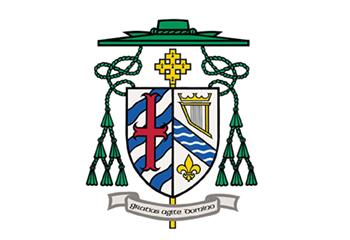
Dear Friends in Christ,
In the middle of August, I wrote to you regarding news reports of allegations of sexual abuse which occurred in our Church and the ensuing cover-up by bishops over the years. As a bishop, I am still ashamed and angry at all that has been revealed during the past few months. After spending time in prayer and reflection, I want to speak with you now about former papal nuncio Archbishop Carlo Maria Viganò’s testimony as well as to provide an update on the steps proposed by the United States Conference of Catholic Bishops (USCCB) to bring healing to survivors and hope to our Church.
The 11-page testimony released by Archbishop Viganò needs to be investigated to the fullest extent. We need to arrive at the truth. Only a thorough investigation will determine whether the claims made by the Archbishop are true. If they are true, action needs to be taken promptly to fix these failures.
Last month, following my letter, Cardinal Daniel DiNardo, president of the USCCB, released developing details on the bishops’ plan to address the current crisis in our Church. You can read Cardinal DiNardo’s full statement (bilingual), dated August 16, at USCCB.org. The Executive Committee of the USCCB continues to meet and they will provide a more concrete plan to the bishops in November. Due diligence is being sought through consultation with experts, laity, clergy, and the Vatican which is why this process is taking a few months.
Here is an important part of his statement:
“The Executive Committee of the USCCB has established three goals: (1) an investigation into the questions surrounding Archbishop McCarrick; (2) an opening of new and confidential channels for reporting complaints against bishops; and (3) advocacy for more effective resolution of future complaints. These goals will be pursued according to three criteria: proper independence, sufficient authority, and substantial leadership by laity.
The first goal is a full investigation of questions surrounding Archbishop McCarrick. These answers are necessary to prevent a recurrence, and so help to protect minors, seminarians, and others who are vulnerable in the future. We will therefore invite the Vatican to conduct an Apostolic Visitation to address these questions, in concert with a group of predominantly lay people identified for their expertise by members of the National Review Board and empowered to act.
The second goal is to make reporting of abuse and misconduct by bishops easier. Our 2002 "Statement of Episcopal Commitment" does not make clear what avenue victims themselves should follow in reporting abuse or other sexual misconduct by bishops. We need to update this document. We also need to develop and widely promote reliable third-party reporting mechanisms. Such tools already exist in many dioceses and in the public sector and we are already examining specific options.
The third goal is to advocate for better procedures to resolve complaints against bishops. For example, the canonical procedures that follow a complaint will be studied with an eye toward concrete proposals to make them more prompt, fair, and transparent and to specify what constraints may be imposed on bishops at each stage of that process.
We will pursue these goals according to three criteria.
The first criterion is genuine independence. Any mechanism for addressing any complaint against a bishop must be free from bias or undue influence by a bishop. Our structures must preclude bishops from deterring complaints against them, from hampering their investigation, or from skewing their resolution.
The second criterion relates to authority in the Church. Because only the Pope has authority to discipline or remove bishops, we will assure that our measures will both respect that authority and protect the vulnerable from the abuse of ecclesial power.
Our third criterion is substantial involvement of the laity. Lay people bring expertise in areas of investigation, law enforcement, psychology, and other relevant disciplines, and their presence reinforces our commitment to the first criterion of independence."
I will attend the November meeting. I will support a plan that will seek the truth and protect our children and young people. It is the only way our Church will be able to move forward.
These reports of sexual abuse remind us of how many people have suffered in the Church. While we can never alleviate their pain, I ask that you join me in prayer for the healing of survivors of sexual abuse, reparation for the sins of clergy, and the restoration of hope for our Church. A diocesan-wide Holy Hour offered for these intentions will take place on Wednesday, September 19th at 7 p.m. at the Cathedral of Saint Andrew. The Holy Hour will also be livestreamed on the diocesan website and Facebook page.
Let us keep our eyes on Christ. He is the only one who can bring us through this turmoil and purify our Church for the future.
Sincerely yours in Christ,
Most Reverend David J. Walkowiak
Bishop of Grand Rapids
Also read/watch:
Interview with Bishop Walkowiak on WZZM 13 (Aug. 29, 2018)
Diocesan-wide Holy Hour to be offered at Cathedral Sept. 19
Safe environment policies and practices in the Diocese of Grand Rapids
Bishop Walkowiak's initial letter to the faithful on the clergy abuse crisis (Aug. 16, 2018)
Bishop Walkowiak's statement on the resignation of Cardinal McCarrick (July 30, 2018)
Additional resources & news
A prayer for healing victims of abuse (bilingual)
Resources for parents
The Clerical Sex Abuse Scandal: What Parents Can Do & How to Talk to Your Kids (Jerry Windley-Daoust, Peanut Butter and Grace)
Practical Advice for Parents on Preventing Child Sexual Abuse (PDF, Virtus)
Read recent statements and ongoing updates from the USCCB:




